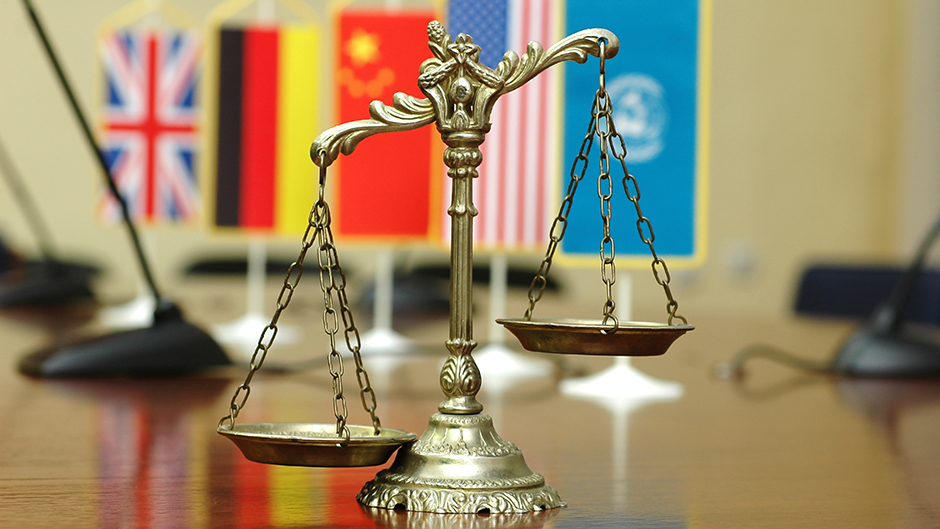The LL.M. was created for lawyers to expand their knowledge, study a specialized area of law, and gain international qualifications if they have earned a law degree outside the United States.
Miami Law's postgraduate LL.M. programs trace back to the first offering in 1952 when the American Bar Association approved the LL.M. in taxation. It continued with several certificate programs aimed at welcoming international students. The Inter-American Law Program started in 1955, followed by the Program for Foreign Students in American and Comparative Law in 1958. By 1960, the law school offered students with a degree from a civil law jurisdiction an M.C.L. (Masters in Comparative Law).
Two Miami Law administrators were crucial for the programs' elevation at the school and national stage: Dean Rafael Benítez and Associate Director Cami Green Hofstadter, a 1971 Master of Comparative Law graduate.
By 1967, with Benítez at the lead, the law school added LL.M. degrees in international and inter-American law. In 1969, Miami Law followed with an LL.M. with a concentration on Ocean Law and LL.M. in Estate Planning in 1975.
The LL.M. in Real Estate Development & Financing (sometimes called Real Property, Land Development, and Finance Law) was added in 1980. In 1984, the General LL.M. for Foreign Students showed up only for students from common law jurisdictions.
Benítez arrived at Miami Law following a distinguished and heroic career in the United States Navy, rising to the rank of rear admiral, and a subsequent career as Pan American World Airways' vice president for Latin America. His Miami Law career was followed by founding and serving as dean of the University of Miami's graduate school of international studies.
At Miami Law, he taught international law and was associate dean. He also inaugurated the "Lawyer of the Americas" (the predecessor of the Inter-American Law Review) and started the master's program in inter-American law for U.S. Lawyers.
Miami Law welcomed practicing attorneys from Brazil, Venezuela, Cuba, Thailand, Kuwait, Taiwan, Chile, Finland, and Vietnam in the early years. With each new student, a flag of their county would be added to the wall of the International Student Room.
"During the three years we overlapped at the University of Miami, I came to know Rafe [Benítez] well," said Keith Rosenn, professor of law emeritus. "We shared a common interest in Latin American law and the foreign graduate students.
"Rafe did an amazing job of launching a graduate foreign law program on a virtually non-existent budget. He dedicated a huge amount of his time to recruiting, selecting, counseling, and teaching the foreign lawyers. As director of the program, Rafe was an odd combination of Rear Admiral and Den Mother. Rafe believed that we had a moral obligation to take in a number of students of less developed countries despite their ill-preparedness for doing graduate legal work in English," said Rosenn.
The program was improved and expanded substantially by the arrival of Associate Director Cami Green Hofstadter, a 1971 Master of Comparative Law graduate of the program and the first woman, in 1985. (She stayed until late 1993.)
One of the program's turning points happened in January 1986 when then-UM President Tad Foote welcomed representatives from 26 law schools to a one-day workshop. Foote, a former law dean of Washington University in St. Louis shared with a group of administrators from geographically diverse law schools, including Harvard, N.Y.U., Brooklyn, Tulane, San Diego, Emory, Georgetown, AU, Chicago, Michigan, and Duke – his suggestions for how law schools can engage their universities with global policy issues.
The following year, in Los Angeles, Hofstadter chaired the group, now designated a provisional section by the Association of American Law Schools. By the time the group met for the third year under the auspices of the AALS annual meeting in Miami Beach in January 1988, they were granted section status with Section on Foreign Graduate Programs.
"With the critical view of a semanticist, I believed that referring to the enrollees as students (although, technically, they were thus while at the law school) didn't give due credit to any prior professional achievements of some of them," she recalled. "This was also a matter of cultural sensitivity, as all admittees had to hold at least one law degree from a foreign law school, and, in some cases, they were influential government officials or renowned members of the judiciary in their home countries."
Hofstadter continued the drive to improve and integrate the program within law schools nationwide.
"Cami's 50th reunion is a wonderful opportunity for us to remember our institutional history as one of the first schools to host foreign-trained lawyers, and to consider our ongoing legacy through our amazing postgraduate programs and the Inter-American Law Review," said Janet Stearns, who joined the University of Miami Law School in October 1999 as director of International and Foreign Graduate Program. "Cami studied during this early era and personally knew our program founder, Dean Rafael Benítez. She had a huge impact in assisting us in raising the funds for the Benítez Scholarship. She continues to be an active author and teacher in our community, has served as the honorary consul of Finland for South Florida, and remains a great credit to the UM family."
Today, Miami Law offers eight LL.M. programs, including the U.S. & Transnational Law for Foreign-Trained Lawyers, Miami Law's general LL.M. program for law graduates and attorneys from all over the world to continue the study of law in a context that emphasizes American common law and its impact in the global economy. The LL.M. programs qualify graduates to take a U.S. Bar Exam and also offer the option to transfer from LL.M. to J.D. program. Miami Law also provides an Intensive Legal English course in preparation for LL.M. and an S.J.D. program.
Graduates include judges, law firm partners, government leaders, C.E.O.s, heads of corporate legal departments, and university professors. They form a valued part of the law school's vast network of more than 23,000 J.D. and LL.M. alumni.
More on Miami Law's LL.M. programs.

